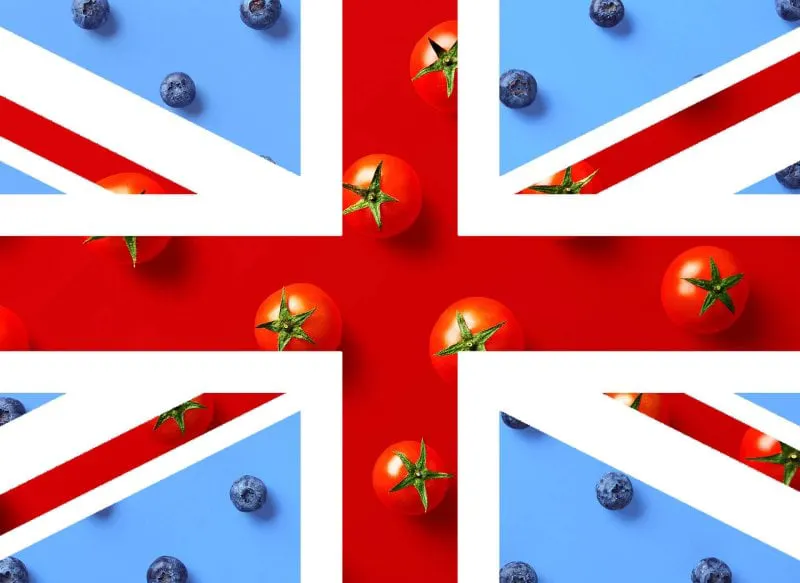Nature editorial: Post-Brexit, the UK should embrace gene editing in food and agriculture while taking safety concerns seriously
Nature editorial: Post-Brexit, the UK should embrace gene editing in food and agriculture while taking safety concerns seriously


[B]ecause of Brexit, [the UK] has an opportunity to diverge from EU [agricultural] regulations. In a consultation that [ended] on March 17, the UK government’s Department for Environment, Food and Rural Affairs (DEFRA) is proposing that gene-editing technology should not be regulated in the same way as GM, if it yields a result that could have been produced by conventional breeding.
The government’s aim is both to boost such research, and to accelerate the commercialization of gene-edited food and agricultural products. It is also asking for broader guidance on whether and how DEFRA should reform existing regulations governing organisms produced using genetic technologies.
…
In seeking to reclassify gene editing, the United Kingdom must also learn from its own past experiences. One reason why Europe has, so far, resisted commercializing gene technologies in food is because genetic technologies have evoked public concern around safety and environmental impact. At the very least, it means the UK government must avoid a narrative that the change is about cutting red tape or speeding up regulation — because that could suggest that safety and other concerns are not being taken seriously.
The United Kingdom is not alone in proposing to change its laws in this way. Other countries have been updating regulations to accommodate agricultural products created using genome-editing tools. Some, such as Argentina, Brazil and Japan, have developed a system in which gene-edited products are categorized on the basis of on how they were modified, and decisions are being made on a case-by-case basis. The United States also considers many gene-edited crops to be similar to conventionally developed crops.
Read the original post

 | Videos | More... |

Video: Nuclear energy will destroy us? Global warming is an existential threat? Chemicals are massacring bees? Donate to the Green Industrial Complex!
 | Bees & Pollinators | More... |

GLP podcast: Science journalism is a mess. Here’s how to fix it

Mosquito massacre: Can we safely tackle malaria with a CRISPR gene drive?

Are we facing an ‘Insect Apocalypse’ caused by ‘intensive, industrial’ farming and agricultural chemicals? The media say yes; Science says ‘no’
 | Infographics | More... |

Infographic: Global regulatory and health research agencies on whether glyphosate causes cancer
 | GMO FAQs | More... |

Why is there controversy over GMO foods but not GMO drugs?

How are GMOs labeled around the world?

How does genetic engineering differ from conventional breeding?
 | GLP Profiles | More... |

Alex Jones: Right-wing conspiracy theorist stokes fear of GMOs, pesticides to sell ‘health supplements’




 Trust issues: What happens when therapists use ChatGPT?
Trust issues: What happens when therapists use ChatGPT? Fighting deforestation with CO2: Biotechnology breakthrough creates sustainable palm oil alternative for cosmetics
Fighting deforestation with CO2: Biotechnology breakthrough creates sustainable palm oil alternative for cosmetics California, Washington, Oregon forge immunization alliance to safeguard vaccine access against federal undermining
California, Washington, Oregon forge immunization alliance to safeguard vaccine access against federal undermining Viewpoint — Fact checking MAHA mythmakers: How wellness influencers and RFK, Jr. undermine American science and health
Viewpoint — Fact checking MAHA mythmakers: How wellness influencers and RFK, Jr. undermine American science and health 30-year-old tomato line shows genetic resistance to devastating virus
30-year-old tomato line shows genetic resistance to devastating virus Viewpoint: Video — Big Solar is gobbling up productive agricultural land and hurting farmers yet providing little energy or sustainabilty gains
Viewpoint: Video — Big Solar is gobbling up productive agricultural land and hurting farmers yet providing little energy or sustainabilty gains The free-range chicken dilemma: Better for birds, but with substantial costs
The free-range chicken dilemma: Better for birds, but with substantial costs ‘You have to treat the brain first’: Rethinking chronic pain with Sanjay Gupta
‘You have to treat the brain first’: Rethinking chronic pain with Sanjay Gupta
